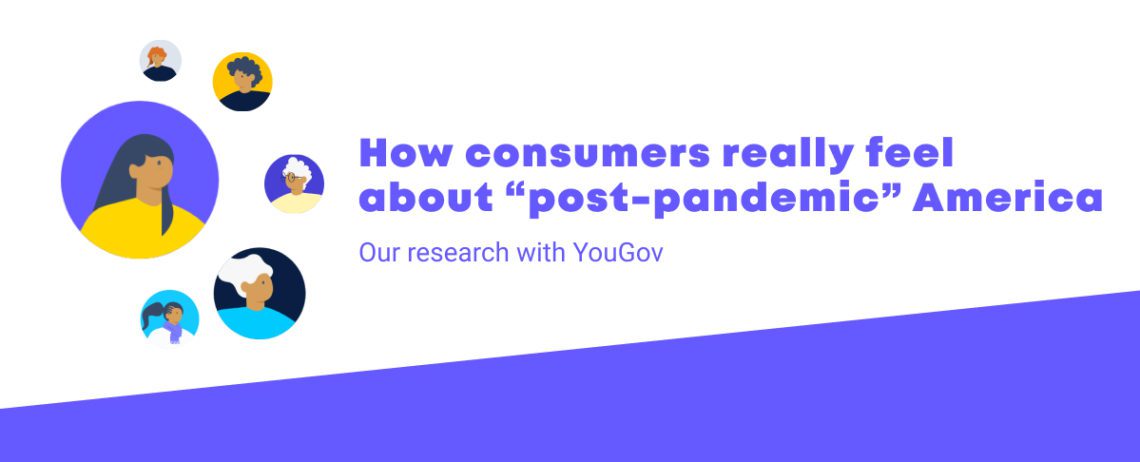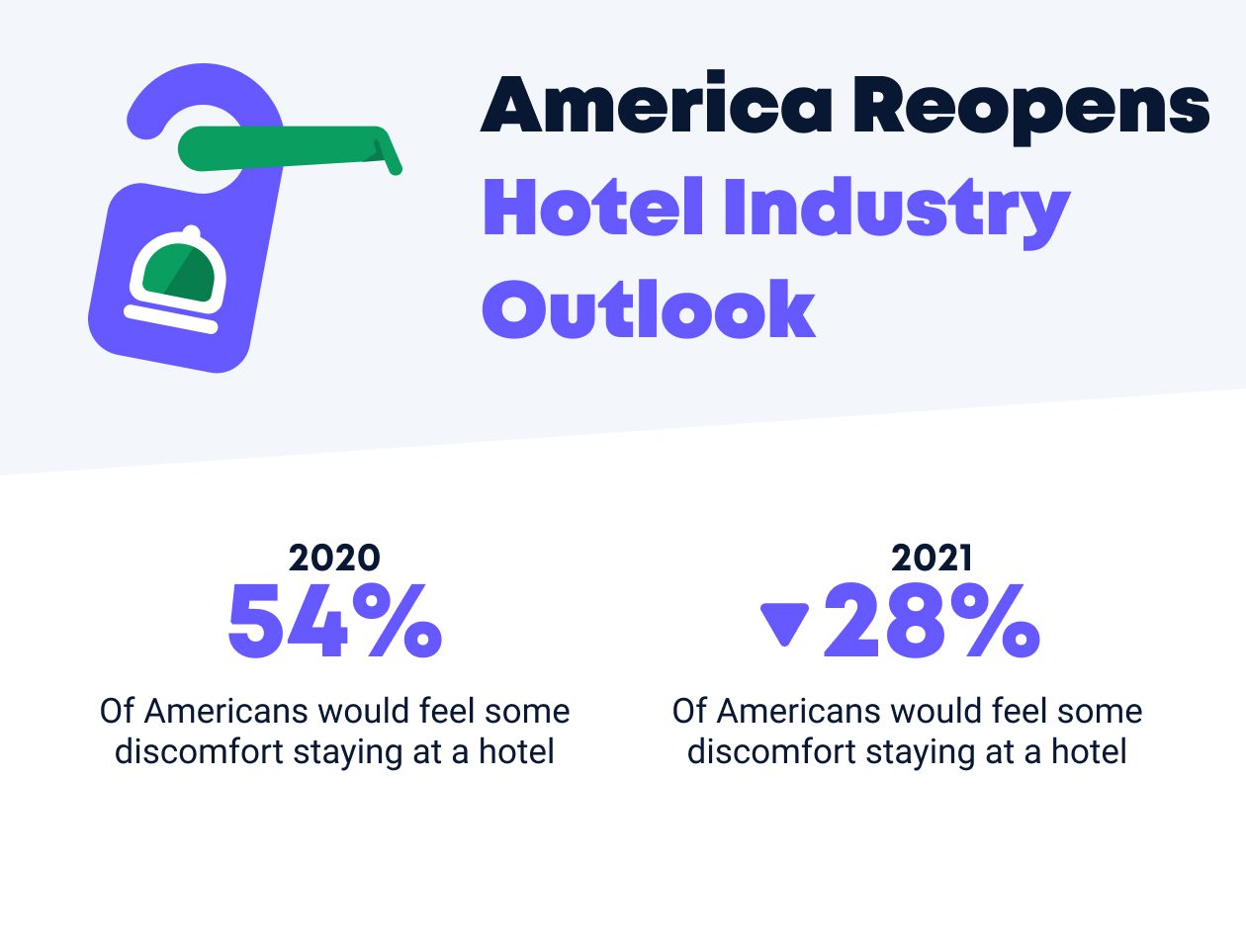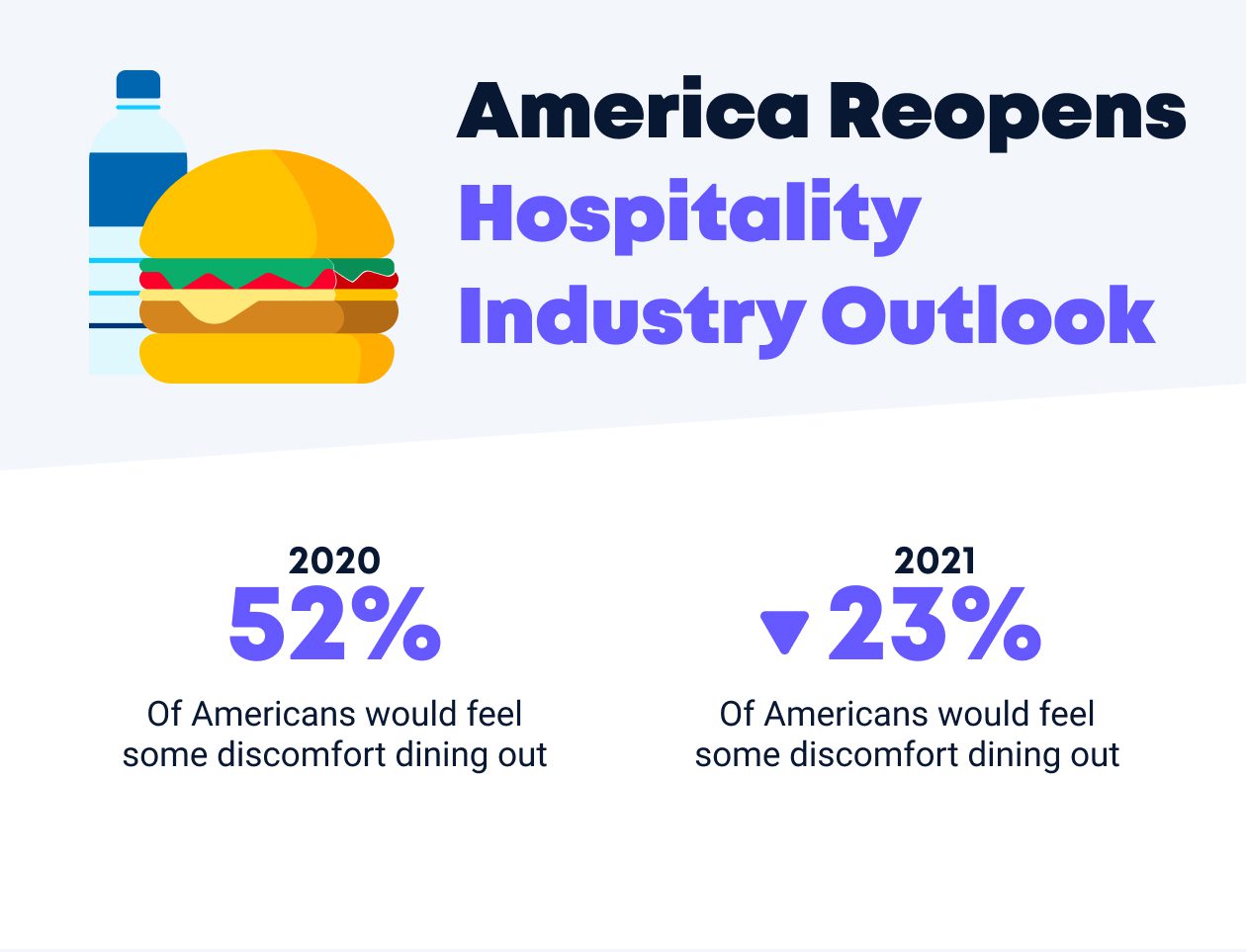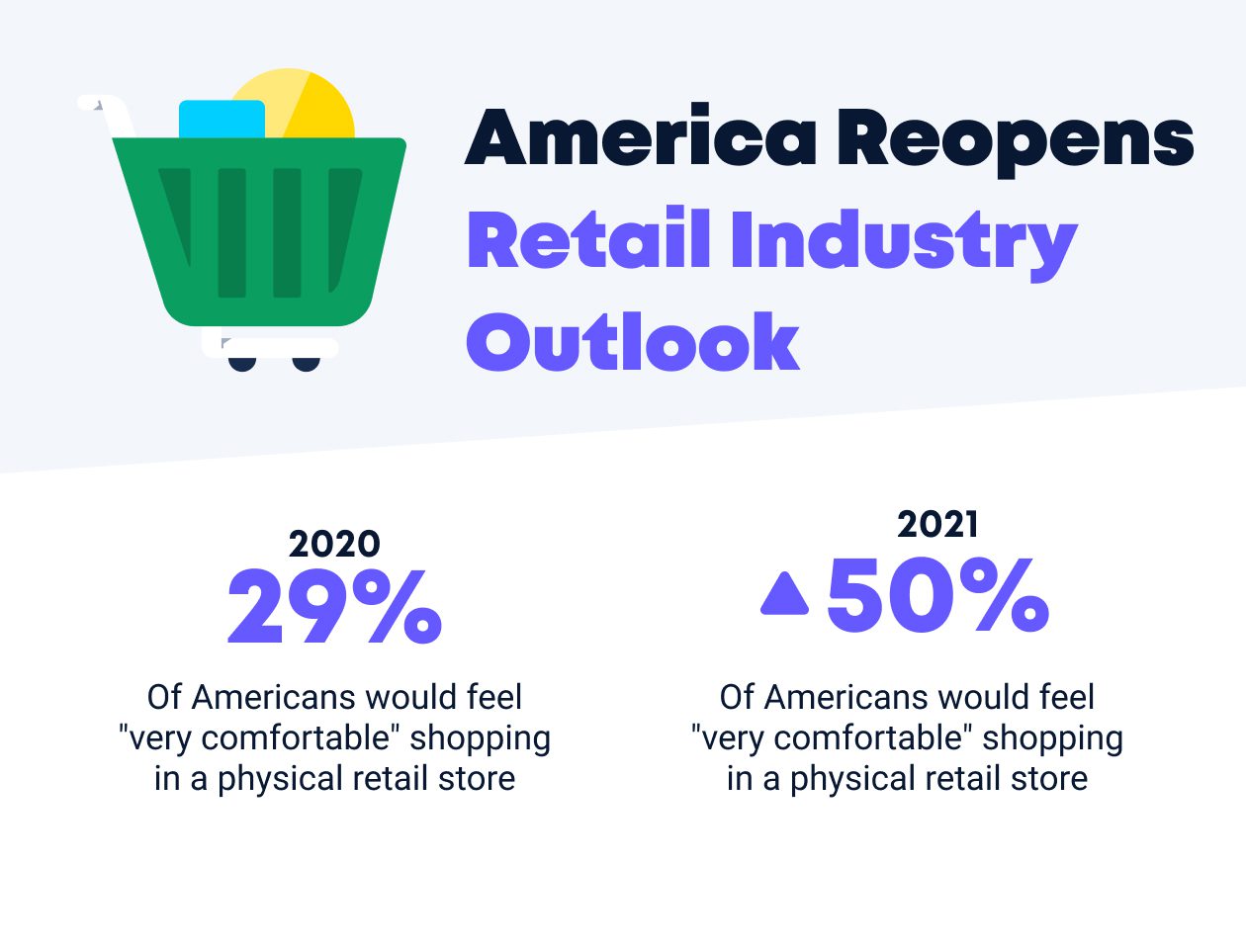How consumers really feel about “post-pandemic” America: our research with YouGov
Feedback From The Field | Industry Trends | SafetyCulture News | By | 21 Jun 2021 | 4 minute read

As vaccination rates climb and coronavirus cases dwindle, life in the United States is beginning to look a little something like it did prior to the pandemic. But after a year of isolation, it hasn’t been an immediate snapback to normalcy. Business as usual isn’t entirely back on the table — and there are marked differences in consumer behavior.
In 2020, SafetyCulture teamed up with national survey organization YouGov to survey over 1,198 Americans about their comfort levels interacting with businesses across a variety of industries. One year and a vaccination rollout later, it’s time to take a look at what has changed.
Once again, we partnered with YouGov to conduct nationwide research of 1,000 U.S. consumers to survey comfort levels as America reopens. As cities and states begin to relax their restrictions, let’s look at what a “post-pandemic” America really means for consumer behavior and business recovery.
So what did our survey find?
Of those we surveyed*:
- The majority (64%) of Americans feel that fully vaccinated people should still wear masks when inside at public places.
- Once vaccinated, Americans are most likely to remain uncomfortable (38%) going to a public event (e.g., sporting arenas, theatres, etc.), closely followed by going to the gym (35%). These activities are more likely to make Americans uncomfortable than visiting a bar/restaurant (25%), shopping in a store (18%) or staying at a hotel (24%).
- Even after being vaccinated, two in ten (20%) American workers indicated they would be uncomfortable returning to the workplace.
- More than one in ten (14%) said they do not plan on getting fully vaccinated, and already feel comfortable engaging in all of the aforementioned activities, with an additional 4% saying they don’t plan on getting fully vaccinated and are uncomfortable doing at least one of these activities.
- More than one in three (36%) said they will have some discomfort visiting businesses that have relaxed COVID-19 safety precautions in the coming months.
- The majority of Americans say they would have increased confidence in a business if:
- Glove, mask, and hand sanitizer supplies were readily available for free and use is enforced in all areas of the establishment (84%)
- For high traffic areas, a list of thorough cleaning and disinfecting activities completed hourly, throughout the day with completion status publicly available (85%)
- Social distancing protocols in place, monitored and enforced, even if it means reduced capacity (82%).
A closer look: before and after
Our research reveals that consumer confidence is on the rise. Americans are feeling much more comfortable undertaking many activities over the coming months compared to the same time period in 2020.
What does this mean for businesses?
Our research reveals that the majority of Americans (63%) say they are comfortable sharing their vaccine status with businesses*. Plus, 43% of Americans said they would have increased trust in organizations which require or request all entrants to share their inoculation status.*
It’s clear that safety precautions are still a priority for the majority of American consumers. Re-building customer confidence is not a one-time exercise, but taking steps to ensure safety is an ongoing approach will no doubt make consumers feel a lot more comfortable as Americans get back into the swing of things.
“After an incredibly tough 2020, it’s encouraging to see consumer confidence increase across various industries,” commented Bob Butler, General Manager, North America with SafetyCulture. “As America reopens, it’s important to remember that vaccines are one part of an effective safety strategy. Clear and manageable safety processes are critical to a successful reopening that lasts. Most businesses have gotten over the hurdle of implementing new procedures. Now it’s time to focus on removing any remaining red tape and friction so safety maintenance becomes second nature.”
Putting it into practice
Start by proceduralizing standards into checklists. These checks should not be a burden, instead it should be simple and routine. By assessing and eliminating unnecessary bureaucracy, organizations can help staff keep track of their various duties.
Digitization is the obvious solution here, but it needn’t come with the time-consuming complexity often associated with digital transformation. Consider introducing processes that already fit with your company’s ways of working. A simple way to start is by using a digital checklist. Spend less time on clerical tasks such as filling in paper checks, typing up reports, and finding the right photos.
Once checklists are completed, the results can be turned into public and collaborative certifications or reports to let staff and consumers know the steps that have been taken to keep the workplace safe. The transparency of simple checklists have the power to build customer trust and loyalty. Government guidelines and leading industry bodies underpin all of our resources, and more than 75,000 businesses are using iAuditor to complete daily COVID-19 risk assessments and inspections.
Now is also the time to consider what new training your staff need to do their best work. As guidelines continue to shift, retraining staff will become a key part of business.
Team buy-in is essential for implementing new processes but more often than not, staff members won’t have office desks or computers to facilitate traditional modes of training. In order to get everyone on the same page, consider introducing new safety training methods that lean into ways people are consuming information, such as micro-learning platforms.

* All figures, unless otherwise stated, are from YouGov Plc. Total sample size was 1198 adults in 2020 and 1000 adults in 2021. Fieldwork was undertaken between 24th – 25th June, 2020 and 7th-8th June 2021. The surveys were carried out online. The figures have been weighted and are representative of all U.S. adults (aged 18+).
Important Notice
The information contained in this article is general in nature and you should consider whether the information is appropriate to your specific needs. Legal and other matters referred to in this article are based on our interpretation of laws existing at the time and should not be relied on in place of professional advice. We are not responsible for the content of any site owned by a third party that may be linked to this article. SafetyCulture disclaims all liability (except for any liability which by law cannot be excluded) for any error, inaccuracy, or omission from the information contained in this article, any site linked to this article, and any loss or damage suffered by any person directly or indirectly through relying on this information.








